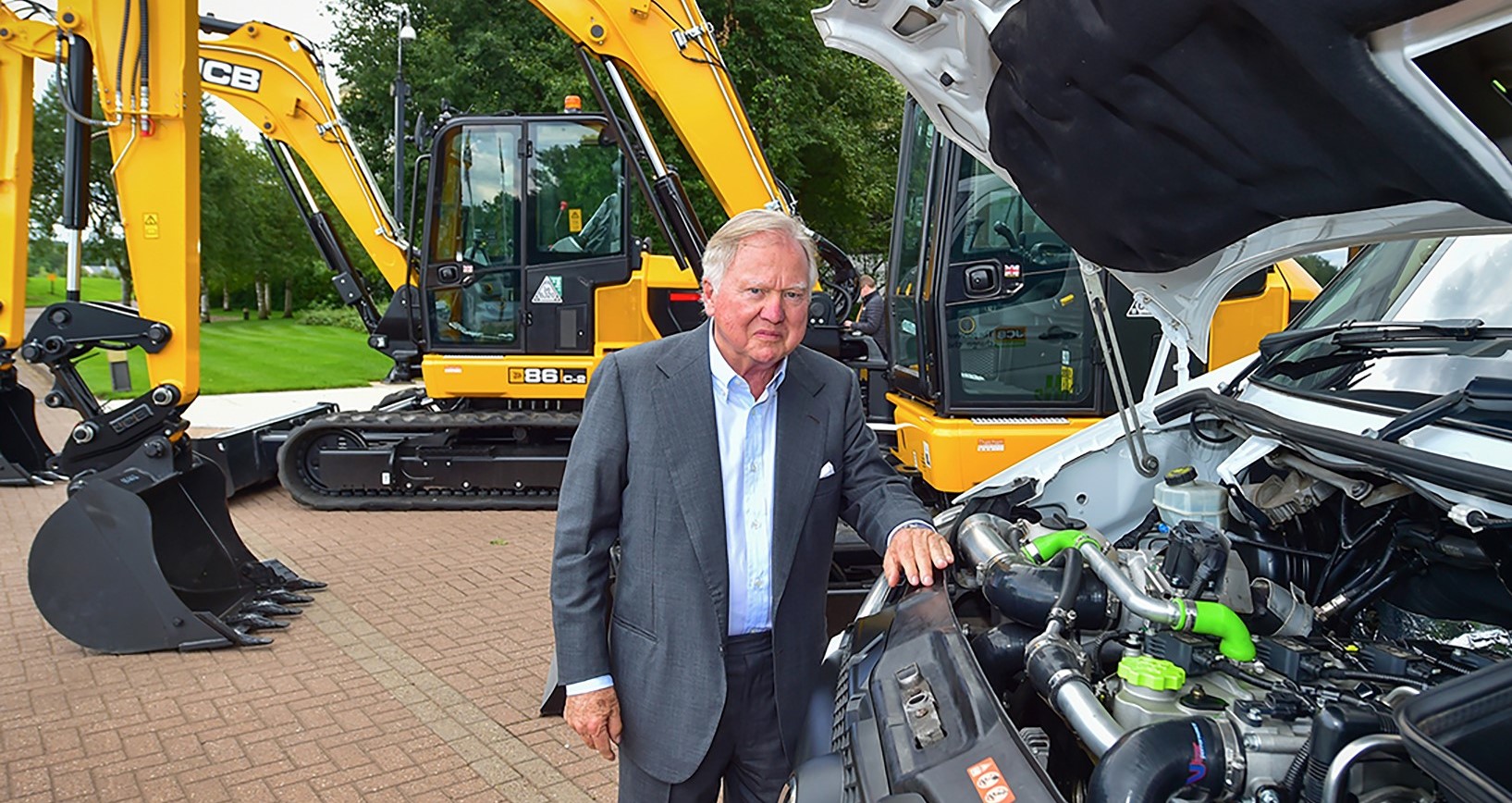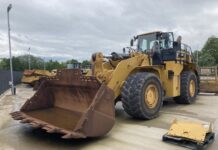
JCB has announced a second ‘major breakthrough’ in proving the wider appeal of hydrogen combustion technology by installing one of its hydrogen engines into a Mercedes Sprinter van.
The white van retrofit was completed in just two weeks and one of the vehicle’s first test drivers was JCB chairman Anthony Bamford, who is leading the company’s £100 million hydrogen engine project.
The internal combustion engine used in the van is the same as those already powering prototype JCB construction and agricultural machines. It is the second Mercedes vehicle to be retrofitted with a JCB hydrogen engine following a 7.5-tonne Mercedes truck earlier this year.
Lord Bamford said, “We have retrofitted this vehicle with a JCB hydrogen engine to demonstrate how simple it will be to convert existing vans and to show that it is not only construction and agricultural machines that can be powered by hydrogen. While converting vans will not be for JCB to do, it does prove there is something else other than batteries that can work very effectively.”
JCB has already manufactured more than 70 hydrogen internal combustion engines in a project involving 150 engineers and they now power prototype JCB backhoe loader and Loadall telehandlers. The converted van was formerly diesel-powered and the switch to hydrogen is said to underline that this form of power could represent a much quicker way to reach global carbon dioxide emissions targets.
JCB added that hydrogen powered vehicles can also be refuelled much faster, with the task completed in a matter of minutes.
Last year JCB unveiled a mobile hydrogen refueller to quickly refuel machines on site. The hydrogen internal combustion engines are manufactured at JCB Power Systems in Derbyshire.








